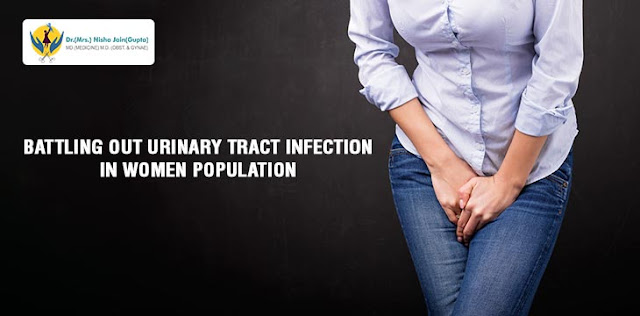How Uterine Fibroids Influence Infertility?
Different complex factors can execute a role in influencing your
ability to get pregnant and deliver a healthy baby. One possible factor
which influences about 20-50% of women of reproductive age is uterine
fibroids. If your parents had fibroids, there’s a great chance that you
can get impacted too.
There are three major complex types of fibroids that differ based on where they are discovered. It includes the subserosal which is in the outer wall of the uterus (55%) then is Intramural which is discovered in the muscular layers of the uterine wall (40%) and submucosal protrude into the uterine cavity (5%). It is still unclear why fibroids emerge but genetics, hormones, and environmental factors all hopefully play a significant role. The most well-known way your doctor will ascertain if you have fibroids is by evaluating their size, number, and location which is often done through a physical exam and ultrasound. In some circumstances, additional imaging tests such as an MRI may be required.
Fibroids which are greater than 6 centimeters in diameter and those stationed inside the uterine cavity are instances of conditions where fibroids may impair your ability to get pregnant and produce a healthy baby.
Studies reveal that in most circumstances, it is only submucosal fibroids which project into the uterus that may impair fertility. There are anomalies including large fibroids that block the openings of fallopian tubes into the uterus. Most ladies who have fibroids will not face impotence as a consequence. If there are difficulties, a woman and her partner should find out if there are other determinants connected prior to seeking therapy for fibroids. Your fertility expert can decide whether fibroids may be a problem and whether any surgery is needed.
Moreover, fibroids can influence the thickness of the uterine lining and even the blood flow to the uterine cavity can also be altered. This can reduce the capacity of an embryo to implant in the uterine wall or develop.
If you are attempting to enhance your fertility vs. reducing symptoms, analysis to date only recommends surgery for submucosal fibroids as it does happen in increased fertility and live birth rates.
Content Source : https://www.drnishajain.com/how-uterine-fibroids-influence-infertility/
There are three major complex types of fibroids that differ based on where they are discovered. It includes the subserosal which is in the outer wall of the uterus (55%) then is Intramural which is discovered in the muscular layers of the uterine wall (40%) and submucosal protrude into the uterine cavity (5%). It is still unclear why fibroids emerge but genetics, hormones, and environmental factors all hopefully play a significant role. The most well-known way your doctor will ascertain if you have fibroids is by evaluating their size, number, and location which is often done through a physical exam and ultrasound. In some circumstances, additional imaging tests such as an MRI may be required.
What Are Uterine Fibroids?
Uterine fibroids are non-cancerous tumors in nature that happen in the muscle tissue of the uterus. Women normally have more than one fibroid and they fluctuate in size and location. Their dimension is often defined by fruit, like the size of a grapefruit. They can alter both the size and shape of the uterus and harm the cervix. Obviously, it’s the size and position that frequently influence whether you encounter symptoms and experience Infertility and need treatment.Can Fibroids Cause Infertility?
It’s a complicated issue and surveys suggest that about 5-10% of women suffering infertility have fibroids and as discussed in the above paragraphs it is their size and location which may generate problems.Fibroids which are greater than 6 centimeters in diameter and those stationed inside the uterine cavity are instances of conditions where fibroids may impair your ability to get pregnant and produce a healthy baby.
Studies reveal that in most circumstances, it is only submucosal fibroids which project into the uterus that may impair fertility. There are anomalies including large fibroids that block the openings of fallopian tubes into the uterus. Most ladies who have fibroids will not face impotence as a consequence. If there are difficulties, a woman and her partner should find out if there are other determinants connected prior to seeking therapy for fibroids. Your fertility expert can decide whether fibroids may be a problem and whether any surgery is needed.
How Do Fibroids Cause Infertility?
Uterine fibroids can influence your fertility in several ways based on how their size and position shifts your uterus, cervix or fallopian tubes. Examples include fallopian tubes that can be blocked by fibroids which makes it challenging or impossible for a fertilized egg to implant, variations in the shape of the cervix can alter the number of sperm that can penetrate the uterus, changes in the appearance of the uterus can conflict with the progress of the sperm or embryo.Moreover, fibroids can influence the thickness of the uterine lining and even the blood flow to the uterine cavity can also be altered. This can reduce the capacity of an embryo to implant in the uterine wall or develop.
Treatment For Uterine Fibroids
Treatment for fibroids should be based on the severity of your symptoms and whether there may be other solutions for your infertility. There are many different treatment options. Like only surgery, often minimally invasive, can reduce any given fibroid forever. Other procedures include the use of ultrasound, electrical energy, embolization or medications which can often make a given fibroid smaller, but seldom only briefly. Moreover, new fibroids may grow after therapy. There is also a controversy over whether surgery will improve your fertility.If you are attempting to enhance your fertility vs. reducing symptoms, analysis to date only recommends surgery for submucosal fibroids as it does happen in increased fertility and live birth rates.
Reference
If you are looking for Uterine fibroid treatment which is impacting your fertility, try meeting Dr. Nisha Jain, the best Gynecologist in Delhi for the best possible outcome.Content Source : https://www.drnishajain.com/how-uterine-fibroids-influence-infertility/




Comments
Post a Comment